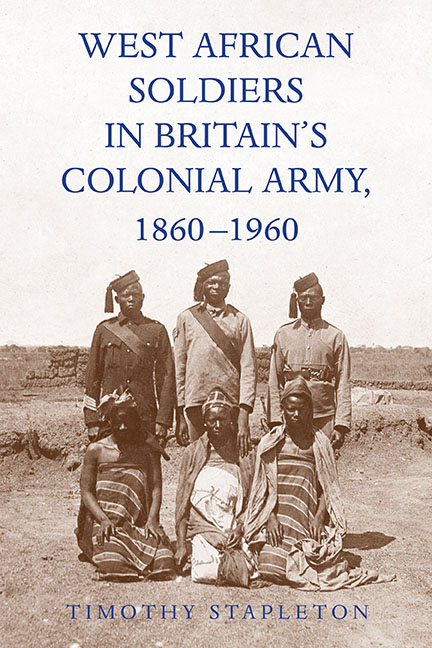Book contents
6 - Health
Published online by Cambridge University Press: 07 October 2022
Summary
Growing interest in the history of military medicine, colonial medicine in Africa, and African militaries has not translated into a rich historiography on the health of Africa's colonial armies. With limited primary sources, excellent pioneering social histories of African colonial soldiers recognize the importance of medical services and health but vary in attention devoted to this theme. A recent study of military medicine in Britain's late eighteenth-and nineteenth-century West India Regiments (WIR), initially recruited from enslaved and conscripted West African men and eventually men of African descent in the Caribbean, traces the evolution of racial thought among white British authorities who initially saw black soldiers as almost superhuman but then highlighted their alleged medical vulnerabilities. Most histories of Britain's West African colonial army of the late nineteenth and twentieth century neglect health as a distinct subject as they appeared before the advent of military or colonial medical history or lacked appropriate sources. Nevertheless, in West Africa, a region popularly known as “the White Man's Grave,” the preservation of health among military personnel represented a crucial factor in extending and maintaining British colonial rule. Archival documents and memoirs indicate that Britain's West African army helped pioneer Western-style medical facilities in the region, as it rigorously pursued two sequential health-related objectives among its European and African personnel. While efforts to minimize the impact of tropical diseases during the late nineteenth and early twentieth centuries enjoyed considerable success, the subsequent campaign against sexually transmitted diseases from the 1920s to 1940s proved a dismal failure. As such, the engagement of Britain's West African soldiers with the evolving colonial health system comprised a significant part of their daily military experience and of the region's colonial military culture.
Tropical Disease and Military Health during the “Scramble” for West Africa
During the formative years of Britain's West African colonial army, tropical diseases like malaria, yellow fever, and various gastrointestinal problems represented the force's overriding health concern. The prevalence of tropical disease had long restricted European colonial penetration of the region's interior. Throughout the early and mid-nineteenth centuries, tropical disease seriously weakened British military garrisons and hindered operations along the West African coast .
- Type
- Chapter
- Information
- West African Soldiers in Britain's Colonial Army, 1860-1960 , pp. 203 - 236Publisher: Boydell & BrewerPrint publication year: 2021

